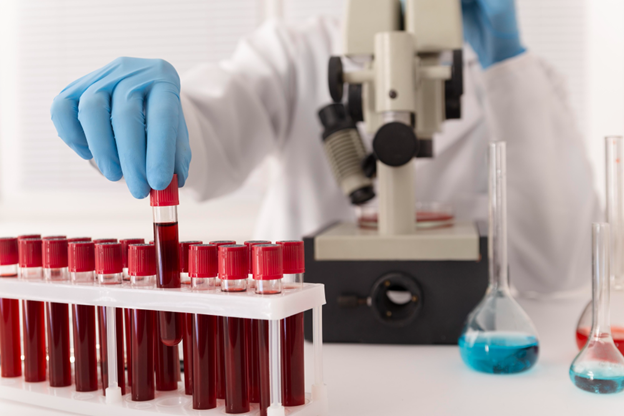What Are Kidney Function Tests?
Kidney function tests are a set of diagnostic procedures that assess how well your kidneys are working. The kidneys play a vital role in filtering waste products, balancing fluids, regulating blood pressure, and supporting overall health. When kidney function is impaired, it can lead to a buildup of waste in the body, electrolyte imbalances, and other serious health issues.
Regular kidney function tests are essential for detecting early signs of kidney disease, especially in individuals with risk factors like diabetes, hypertension, or a family history of kidney problems. These tests are non-invasive and provide valuable insights into your kidney health.
Why Kidney Function Tests Are Important
Early detection of kidney problems can prevent further damage and allow for timely intervention. By assessing how well your kidneys are functioning, healthcare providers can identify conditions such as chronic kidney disease (CKD), acute kidney injury (AKI), or kidney infections. These tests are especially important for individuals at high risk, including those with:
- Diabetes
- Hypertension (high blood pressure)
- Cardiovascular disease
- A family history of kidney disease
- Older age
Types of Kidney Function Tests
There are several types of tests that healthcare providers use to evaluate kidney function:
- Blood Tests:
- Serum Creatinine Test: Creatinine is a waste product generated by muscle metabolism. High levels of creatinine in the blood may indicate kidney dysfunction, as the kidneys are responsible for filtering it out.
- Glomerular Filtration Rate (GFR): This test estimates how much blood passes through the kidneys’ filtration system per minute. A low GFR indicates impaired kidney function.
- Blood Urea Nitrogen (BUN): BUN measures the amount of urea nitrogen in the blood, a waste product produced by the liver when breaking down proteins. Elevated BUN levels can suggest kidney problems.
- Urine Tests:
- Urinalysis: A routine test that examines the urine for signs of protein, blood, or infection. Protein in the urine, known as proteinuria, can be an early sign of kidney disease.
- Urine Albumin-to-Creatinine Ratio (ACR): This test measures the amount of albumin (a type of protein) in the urine. Elevated levels of albumin can signal kidney damage, particularly in individuals with diabetes or hypertension.
- Imaging Tests:
- Ultrasound: An imaging test that uses sound waves to create pictures of the kidneys. It can help identify structural abnormalities, such as cysts, tumors, or kidney stones.
- CT Scan or MRI: These tests provide more detailed images of the kidneys and can help identify problems that might not be visible on an ultrasound.
- Kidney Biopsy: In some cases, a kidney biopsy may be needed. A small sample of kidney tissue is removed and examined to diagnose conditions like glomerulonephritis or to assess the severity of kidney disease.
When Should You Have Kidney Function Tests?
Kidney function tests are typically recommended for individuals at higher risk of kidney disease, but they can also be part of routine health checkups. You should consider kidney function tests if you:
- Have diabetes, high blood pressure, or heart disease
- Have a family history of kidney disease
- Are over the age of 60
- Experience symptoms like swelling in the legs, feet, or ankles, fatigue, nausea, or changes in urine output
What Kidney Function Tests Reveal
Kidney function tests can provide vital information about how well your kidneys are working and whether there are any signs of damage or disease. Here’s what the tests can reveal:
- Creatinine Levels: High creatinine levels can indicate that the kidneys are not filtering waste properly.
- Glomerular Filtration Rate (GFR): A GFR below 60 mL/min/1.73m² for three months or more is considered a sign of chronic kidney disease.
- Protein in Urine: The presence of protein in the urine is an early sign of kidney damage.
- Blood in Urine: Blood in the urine can indicate infection, kidney stones, or other kidney-related issues.
- Electrolyte Imbalances: Kidneys play a key role in balancing electrolytes like potassium, sodium, and calcium. Abnormal levels may suggest kidney problems.
Conclusion
Kidney function tests are crucial for identifying potential kidney problems before they become severe. Regular testing allows for early detection and timely treatment, helping to prevent long-term kidney damage. If you have risk factors for kidney disease, it’s essential to stay proactive about your kidney health and consult with a healthcare provider for appropriate testing and management.
Schedule your test today at Baviskar Pathology lab for expert guidance!


